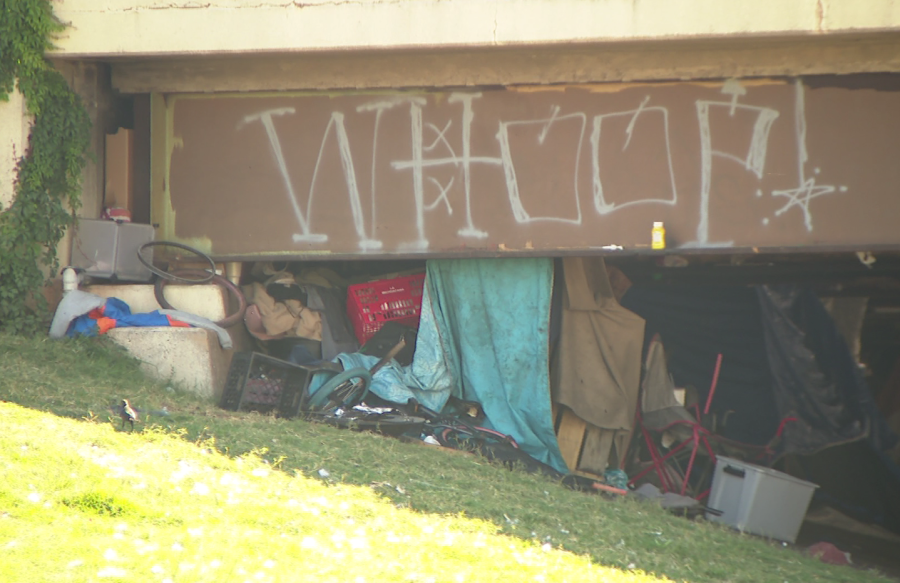A Growing City with a Decreasing Homeless Population
If you drive around Oklahoma City, it might seem like the homeless population is increasing. However, according to Mayor David Holt’s recent State of the City address, the data tells a different story. While the city continues to face challenges related to homelessness, the numbers show that the situation is improving.
“One person experiencing homelessness is too many, and that’s always the attitude we’ll take,” said Mayor David Holt. His words reflect the city’s ongoing commitment to addressing this issue.
Homelessness remains a visible problem in Oklahoma City, with people often seen living in tents, pushing shopping carts, or occupying public spaces. Meghan Mueller, from the Homeless Alliance, explained that homelessness is not just about the individuals affected but also the broader impact on the community.
“Homelessness is just a very visible problem,” Mueller said. “When people don’t have any place else to go, they occupy public space.” She emphasized that one of the biggest challenges for her organization is changing public perception.
“There are by-products of homelessness, like trash and other issues, that can be difficult,” she added.
According to data presented by Mayor Holt, the city has made significant progress over the years. In 2007, Oklahoma City had a population of 547,790 residents, with 1,656 people experiencing homelessness. That meant 30 out of every 10,000 residents were homeless.
By 2025, the population has grown to 712,919 people, with 1,719 homeless individuals. This means that only 24 out of every 10,000 residents are now homeless.
“It was no accident,” said Mayor Holt, crediting the city’s efforts and partnerships with local organizations.
The collaboration between the city and nonprofits has played a key role in reducing homelessness. “We’re all pulling on the same rope,” said Mueller.
One of the most successful initiatives is the “Key to Home” program, which helps individuals experiencing homelessness secure stable housing. The program provides support for underlying issues that may have led to homelessness, such as mental health challenges, substance abuse, or lack of employment.
Mayor Holt noted that the city adopted this model from Houston, Texas, which is recognized as the best city in the nation for tackling homelessness.
However, as the population continues to grow, the challenge of maintaining progress becomes more complex. “It’s only getting more challenging and harder as we grow,” said Holt.
With limited resources, non-profits cannot bear the burden alone. “At the end of the day, there just aren’t enough resources to go around,” Mueller said. “So, it’s very important as a community we’re very strategic with the limited resources we have.”
She emphasized that every individual deserves dignity and support. “They’re people with lives that people care about. None of our friends or neighbors should have to sleep outside.”
While the numbers show progress, the work is far from over. The city and its partners continue to focus on long-term solutions, ensuring that no one is left behind.







